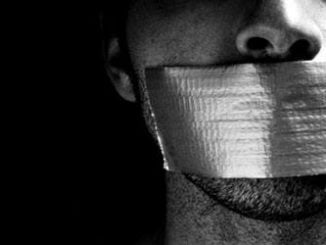
Internet Throttling
Believe it or not, internet bandwidth is never truly unlimited. The signal being sent to your devices is coming from a single cell tower that is shared with many other individuals simultaneously.
For this reason, internet service providers (ISPs) may sometimes “throttle,†or limit, your usage to certain speeds without expressly telling you when they are doing it in order to free up bandwidth for others connected to the same tower.
Typically, ISPs only throttle what they consider to be a “heavy†internet user — as per their own definition — during “times of high traffic.â€
A typical internet user will likely never experience network throttling. If your internet is slow, there may be another reason behind it.
It’s frustrating to run a speed test and see that you’re getting less speed than you’re paying for. The question is: are you being throttled? Or is it some other issue?
What Is Throttling Data?
Throttling is the process of an ISP purposely slowing down an internet user’s data transmission. Sometimes you’ll see lower speeds that are difficult to explain and aren’t attributed to equipment issues. You won’t always receive a clear notification that your connection is throttled despite rules that pressure telecom companies to inform you, so the uncertainty regarding your slower connection can be incredibly frustrating.
Currently, you’ll usually see a throttling of your entire connection, but with the repeal of Net Neutrality, some people worry that ISPs may start throttling specific types of content. This is not yet a common issue.
Why Do ISPs Throttle Data?
There are multiple reasons why an ISP might throttle data:
1. You have met your data limit. Many people have data limits on their internet connections. When they exceed the allotted amount of data, their speeds will often be drastically reduced. Instead of cutting off access to internet service completely, ISPs instead prioritize customers that are within the terms of their plan. The slower speeds can be incredibly annoying, but it’s definitely preferable to losing the ability to surf the web completely.
2. You are connected during a “high traffic†time. While bandwidth isn’t usually an issue for major internet providers, the fact remains that it is a finite resource. With extremely heavy data use that exceeds allowances, ISPs may need to throttle some connections in order to provide high speeds to the rest of their customers.
3. Your ISP is choosing to throttle your specific activity. With the repeal of Net Neutrality, the ability of an ISP to throttle may be expanded, adding the ability to throttle specific types of content or to charge higher fees to major data users such as streaming services like Netflix. If costs are increased dramatically for these content providers, the costs of paying off ISPs may be passed down to you.
How To Check If Your ISP Is Throttling Bandwidth
The most obvious way to tell if your internet is being throttled would be to run a free speed test available online. Unfortunately, most internet providers can detect speed tests and artificially inflate your speeds to make it appear that they’re not throttling you.
So, a speed test isn’t a foolproof way to identify internet throttling.
The only reliable method of checking whether your connection is throttled is through a Virtual Private Network, also known as a VPN.
ISPs may sometimes throttle only specific types of content, and a VPN can make this practice next to impossible by masking your IP address and activities from your ISP.
With your ISP forced to treat all of your content equally due to the inability to discern what sort of websites you’re viewing, you should then be able to measure your true speeds using an online speed test.
How To Fix Data Throttling
Thankfully, there are a couple of practical steps you can take to fix internet throttling:
1. Monitor your monthly data usage. If you’ve exceeded your data limit on a capped plan, you can usually avoid the issue by better monitoring your usage moving forward or switching to a plan with higher data allowances. If your data is supposed to be “unlimited,†however, there may not be an easy fix.
2. Sign up for a reputable VPN. A good VPN may be able to provide you a solution to internet throttling. If a VPN cannot solve the issue, you may need to resort to one of the next two steps. One thing to keep in mind, though, is that many large online services such as Netflix and Hulu are getting better at detecting VPNs and may restrict you from using their services if they cannot determine your location.
3. Switch to a new internet service provider. Some ISPs are more notorious when it comes to slowing down its users, and almost every ISP has a different data cap in its terms. If you are constantly being throttled, you may want to sign up with another internet service provider that has a significantly higher data cap.
Why Is My Internet Slow?
If you’ve gone through the appropriate tests and determined that your internet isn’t being throttled, or you simply aren’t convinced one way or the other, there are other tests you can perform to find the true cause.
Here are a few reasons why your internet could be slow:
Your modem and router are old or outdated. Most of the time, the issue is something to do with your modem and router — they might need a restart, or be too old to function properly.
You’re connected during “high traffic†hours. The second most common issue is “peak use†slowdowns from other customers. It’s normal for cable Internet to slow down around 30% from 5–9 PM when everyone in the neighborhood starts their nightly Netflix binge.
WiFi connections are slower than Ethernet. Finally, keep in mind that it’s normal for Internet connections to slow down when you’re on WiFi vs. plugged in with Ethernet. Connect your computer to the router with Ethernet and run a speed test to see if the speed is still reduced.
Go through the checklist below to check if there’s another issue before assuming you’re being throttled:
Check for Throttling Checklist
- Reset your router. Occasionally, the equipment just needs a reboot to get your connection back up to speed.
- Connect via Ethernet cable to see if it’s a problem with your WiFi
- Connect via another device to see if the problem is isolated to one computer.
- Check for viruses with a reputable antivirus and malware scanner
- Call your service provider to see if they can detect a technical issue.
Is Internet Throttling Legal?
In most cases, the throttling of an internet connection is legal. One common reason that data is throttled is due to excess use on a plan with a data cap. In almost all cases, ISPs are obligated to inform consumers when they throttle connections.
Back in 2015, US courts ruled that companies could not prioritize different streams of data with “internet fast lanes,†or penalize customers for not upgrading to a faster plan. With the repeal of Net Neutrality, these provisions have basically been gutted, making regulations around selective throttling nearly non-existent.
Despite the repeal of these protections, ISPs generally still have to inform customers when they throttle data. Outside of the obligation to provide notification, however, these companies now have much fewer limits when it comes to prioritizing content and charging customers for priority connections.
Many ISPs have made a pledge to treat the greater freedom responsibly, in spite of past issues with blocking select services.




